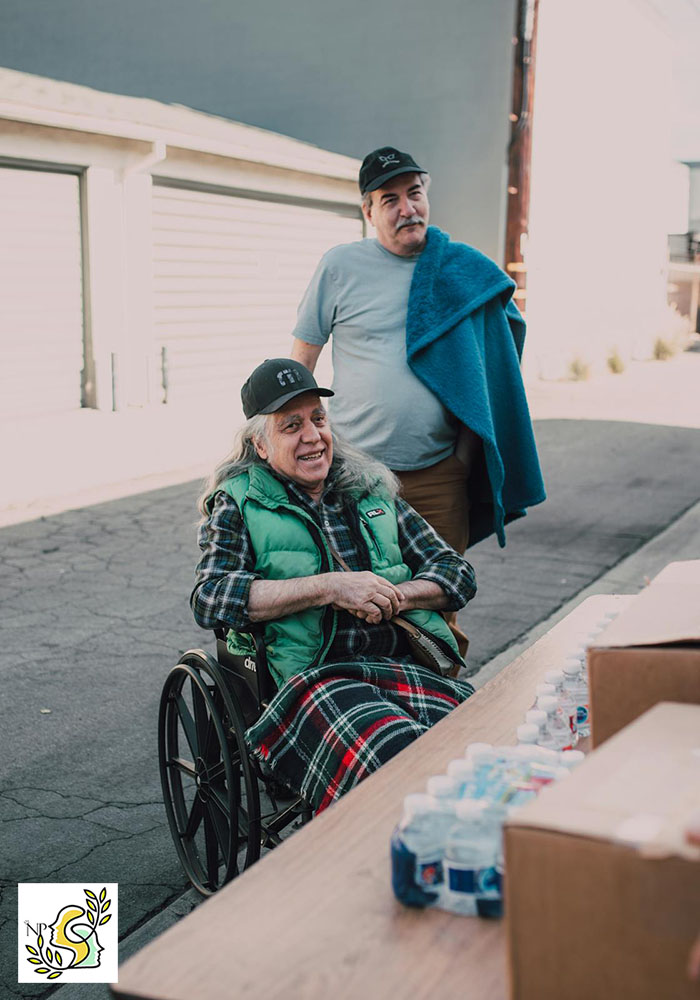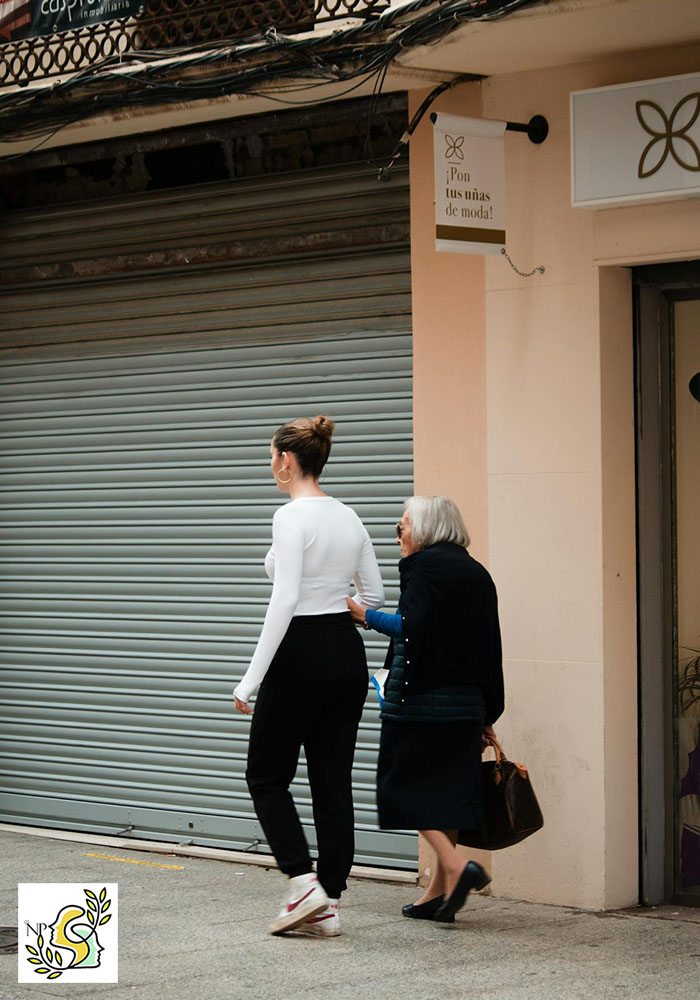Introduction: My neighbor has dementia and lives alone, a situation that underscores the pressing need for awareness and solutions addressing the challenges faced by individuals with cognitive impairments. Dementia, a progressive neurological disorder, impacts millions worldwide, leading to difficulties in memory, communication, and daily functioning. Living alone compounds these challenges, often resulting in social isolation, increased vulnerability, and difficulty managing essential tasks.
The goal of this essay is to explore the multifaceted impact of dementia on individuals who live independently and to propose strategies that promote their safety, well-being, and quality of life. By examining relevant research, real-life cases, and possible interventions, I aim to shed light on how communities and healthcare systems can better support individuals with dementia, fostering a more inclusive and understanding society.
Table of Contents
My neighbor has dementia and lives alone

Dementia represents a multifaceted neurological disorder characterized by progressive impairments in memory, cognitive function, and behavior. The biggest risk factor for dementia is ageing. This means as a person gets older, their risk of developing dementia increases a lot. For people aged between 65 and 69, around 2 in every 100 people have dementia. Interestingly Long-term Xanax use has been associated with an increased risk of developing dementia in some studies. (1)
Dementia not only impacts the affected individuals but also presents significant challenges for the broader community. Effective support for a neighbor living with dementia necessitates a foundation of empathy, heightened awareness, and the implementation of thoughtful and proactive strategies.
Dementia is a progressive neurodegenerative condition that initially manifests with subtle symptoms, often exerting minimal influence on an individual’s daily activities. However, as the condition advances, the severity of symptoms escalates, progressively impairing cognitive functions and diminishing the individual’s capacity to perform routine tasks, manage self-care, and maintain independent living. The progression of cognitive decline necessitates increased support and supervision to ensure safety and well-being. Individuals experiencing significant cognitive impairments associated with dementia should not reside alone, as they may be at heightened risk of harm due to their reduced ability to navigate daily challenges independently. (3,4,5,6)
The experiences of individuals who reside in proximity to neighbors with dementia provide unique insights into the challenges and complexities of this condition’s social implications. These encounters often highlight the difficulties faced by both the individual with dementia and their surrounding community. Exploring the Experiences of Individuals Living Next to Neighbors with Dementia:
Fariba described her neighbor’s circumstances in detail:
Fariba reporting concerns about a neighbor with dementia: Residing in Pennsylvania while her adult children live in New Jersey, the neighbor has become increasingly unable to manage her daily life independently. Despite Fariba’s active efforts to assist, the neighbor exhibits behaviors that not only endanger herself but also raise concerns among others in the community. For instance, the local tax collector contacted the neighbor’s son regarding her erratic actions. Nevertheless, she continues to live alone, resisting external help and becoming hostile when her children are contacted on her behalf.
Fariba has engaged extensively in advocacy for her neighbor, even communicating with her insurance company, which expressed frustration over repeated calls about the same issues. Despite these efforts, the neighbor’s deteriorating condition underscores the need for immediate and structured assistance. Observable signs of her cognitive decline include an unkempt appearance, inability to complete sentences, confusion about the current year, difficulty following written instructions, and frequent misplacement of items. Additionally, she displays paranoia, accusing others of taking her belongings, and still drives despite becoming lost frequently.
A particularly alarming concern is that the neighbor is solely responsible for managing her medication, a task that presents substantial risks given her condition. Based on these observations, Fariba believes her neighbor is in the late stages of Alzheimer’s disease and requires urgent intervention for her safety and well-being. This case underscores the critical importance of community awareness and support for individuals with progressive cognitive disorders. It also highlights the necessity for coordinated care, including family involvement, medical oversight, and, potentially, transitioning to supervised living arrangements to ensure the individual’s safety and quality of life. Immediate action is imperative to address these pressing concerns.
The following essay explores the case of a long-term resident in a Queens apartment building whose recent behavioral changes raise concerns about her health and well-being. Sofia, a concerned neighbor, provides insight into the situation:
The subject of this case study is a woman residing on the first floor of the apartment building, notable for her long-standing presence and social interactions. Historically, she was known for her vibrant personality and frequent conversations with other residents near the elevator. She has two sons, one of whom visits her for approximately 30 minutes once a week. Despite this regular contact, her recent actions suggest significant cognitive and behavioral changes.
Over the past few months, this individual has exhibited peculiar behaviors, including placing slices of bread on her doorstep to “feed pigeons” within the confines of the building, wearing shoes on the wrong feet, and improperly donning her clothes. She has also been observed stuffing toilet paper into her nose and engaging in nonsensical speech, accompanied by episodes of crying and screaming without apparent cause. Furthermore, she no longer recognizes Sofia, whom she had known for years, and frequently questions why others are afraid of her, asserting that she is “fine” despite clear evidence to the contrary.
Physically, the woman appears to have experienced a significant decline, losing considerable weight and transforming from a vibrant individual into a frail “shell” of her former self. Her intermittent moments of apparent normalcy may obscure the severity of her condition to those who visit infrequently, such as her family members. The situation raises ethical and practical questions for neighbors and bystanders. Sofia expresses a desire to ensure her neighbor’s safety and well-being but is uncertain about whether and how to intervene. She suspects that the woman may be experiencing dementia, a condition characterized by progressive cognitive decline and behavioral changes that can impair an individual’s ability to live independently.
This case highlights the challenges of recognizing and addressing cognitive decline in community settings, particularly when family members may not be fully aware of the extent of the individual’s condition. While Sofia’s instincts to respect the woman’s privacy are commendable, the observed behaviors indicate a potential need for intervention to prevent harm.
From a broader perspective, this case underscores the importance of community awareness and the role of neighbors in identifying and addressing health concerns in aging populations. Potential steps include discreetly contacting the family to share observations, consulting social services or adult protective agencies for guidance, or seeking advice from local healthcare professionals. While it is essential to approach such situations with sensitivity and respect for autonomy, timely intervention can be critical in ensuring safety and access to necessary care.
One of my friends shared this story with me about one of his clients:
A concerning scenario was recently shared by an individual about their neighbor, who exhibits behaviors suggesting cognitive impairment. He says “my neighbor has dementia and no family”. The neighbor has a history of frequently entering the individual’s property and roaming around the neighborhood. However, in recent weeks, her supervision has noticeably diminished, coinciding with a marked increase in her disoriented and potentially hazardous behavior.
Incidents include unauthorized entry into the individual’s backyard and discarding items into their property, behaviors that disrupt privacy and security. More alarmingly, the neighbor recently wandered significantly farther than usual and entered a street, posing a clear threat to her safety.
Despite attempts to address these issues with her caregivers, the response has been met with denial regarding the severity of her condition. This highlights a critical gap in her care and raises urgent questions about the responsibility and interventions necessary to ensure her safety while respecting the privacy and security of those around her. Exploring viable solutions, such as engaging social services or advocating for a professional medical evaluation, becomes essential to mitigate risks for all parties involved.
now, please listen to: dementia & living alone, it’s possible:
Is it okay for someone with dementia to live alone?
Dementia is a progressive neurological condition that impairs cognitive functioning, often affecting an individual’s ability to live independently. It is crucial to ensure that individuals with dementia who exhibit cognitive impairments are provided with appropriate care and supervision to prevent potential harm.
Several indicators can signify that a person with dementia may no longer be capable of living alone safely:
- Personal Hygiene Challenges: Difficulties in maintaining personal cleanliness can be an early sign of declining independence.
- Household Conditions: An unclean, disorganized, or unhygienic living environment may reflect an inability to manage daily tasks.
- Nutritional Issues: Noticeable weight loss or difficulties in preparing meals can indicate an inability to meet basic nutritional needs.
- Communication Difficulties: Struggles with expressing thoughts or understanding others may hinder social interactions and necessary communication.
- Mobility Problems: Challenges with physical movement can increase the risk of falls or accidents.
- Disorientation: Getting lost while outside, even in familiar surroundings, can be a dangerous consequence of cognitive decline.
- Injuries and Accidents: A history of falls, accidents, or injuries within the home environment signals potential safety risks.
- Mental Health Decline: Symptoms such as anxiety, depression, or emotional distress may worsen without appropriate support.
Recognizing these signs is essential for caregivers, family members, and healthcare professionals to determine when additional care or assisted living arrangements are necessary. Early intervention can significantly improve the quality of life and safety for individuals with dementia, ensuring their well-being in a supportive and supervised environment. (7,8,9)
What happens to people with dementia with no family?

Living alone with dementia presents unique challenges, including increased risks of social isolation, health complications, and difficulty managing daily activities. During the early stages of dementia, many individuals successfully maintain their independence. Adapting the living environment, implementing safety measures, and seeking support can significantly ease daily challenges. For those living alone, it is essential to address legal and financial matters early, while decision-making capabilities remain intact. This proactive approach ensures that one’s preferences are documented and facilitates clear guidance for caregivers and family members.
Physical changes associated with Alzheimer’s disease, such as balance issues, can increase the risk of falls. Alterations in light sensitivity, color contrast perception, and depth perception may further compromise stability and navigation. Addressing these challenges through environmental modifications and safety precautions can enhance both comfort and mobility. Feelings of isolation and withdrawal are also common following a diagnosis or as the disease advances. Establishing a regular routine that fosters connections with friends and family is crucial for emotional well-being. Participation in programs and support groups designed for those in the early stages of Alzheimer’s can also offer valuable social interaction and mutual understanding.
When individuals with dementia have no family to support them, their care often depends on community resources, healthcare providers, and social services. Here’s what typically happens:
1. Community-Based Support
- Local authorities or community organizations may intervene to provide support. Social workers assess the person’s needs and coordinate care.
- Some countries have programs that appoint a guardian or advocate for individuals who lack family support.
2. Healthcare Facilities
- Individuals without family may be placed in assisted living facilities or nursing homes where they can receive 24-hour care.
- Depending on the region, funding for such care may come from government programs, insurance, or personal assets.
3. Legal Guardianship
- A court may appoint a public or professional guardian to make decisions about healthcare, finances, and living arrangements.
4. Volunteers or Nonprofits
- Organizations that focus on elder care or dementia support may step in to provide companionship and advocacy.
- Some groups train volunteers to visit and assist individuals without family.
5. Challenges
- Isolation: Without family, individuals are at higher risk of social isolation and depression.
- Oversight: Limited advocacy can sometimes lead to neglect or abuse if oversight systems are weak.
- Financial Difficulties: Without a family to manage finances, it may be harder to ensure that funds are used effectively for care.
6. End-of-Life Decisions
- Without family, end-of-life decisions are typically made by healthcare providers in consultation with appointed guardians, based on the person’s best interests and any advance directives they may have created.
If you or someone you know is concerned about a person with dementia who has no family, connecting with local social services or elder care agencies can help ensure they receive proper care and attention.
How do you handle a Neighbor with dementia?
Dementia affects many individuals in our communities, including possibly those residing in your neighborhood or even on your street. It is also likely that some of your friends or neighbors may be living with this condition. Dementia manifests through symptoms such as confusion, memory lapses, difficulty recalling words, and repetitive speech. These challenges can render daily activities stressful and overwhelming for those affected. Individuals living with dementia often benefit from additional support to navigate everyday tasks. This essay provides practical advice to assist and support individuals with dementia effectively.
At the core of aiding a person with dementia is fostering a compassionate and understanding environment. Active listening, offering reassurance, and affirming the efforts of caregivers are essential. Simple gestures, such as acknowledging their contributions and encouraging their sense of agency, can have a profound impact. Proactive offers of help—such as asking, “I’m heading into town; can I pick up anything for you?”—demonstrate care and attentiveness, ensuring that those with dementia and their caregivers feel valued and supported. By adopting these thoughtful practices, individuals can contribute meaningfully to the well-being of those with dementia, creating a more inclusive and compassionate community.
Safety tips for neighbors with dementia

Dementia is a complex condition that affects memory, cognition, and behavior, often posing challenges for both individuals and their communities. Supporting an elderly neighbor with dementia requires empathy, awareness, and proactive measures. By educating yourself about their condition, staying vigilant for behavioral changes, ensuring they have proper identification, and fostering a safe environment, you can play a vital role in enhancing their safety and quality of life. Such efforts not only benefit the individual with dementia but also contribute to building a compassionate and inclusive community. As a neighbor, adopting specific measures can significantly enhance the safety and well-being of someone with dementia while fostering a supportive environment. Here we outline practical steps and strategies for neighbors to assist individuals with dementia effectively. (5,6,7)
Understanding the Condition
A foundational step in supporting a neighbor with dementia is gaining knowledge about the condition. Engage with their family or caregiver to understand the individual’s specific needs, behaviors, and the potential for wandering. This insight helps tailor your approach and ensures that your efforts align with their unique circumstances.
Observing and Responding to Behavioral Changes
Vigilance is key when supporting a neighbor with dementia. Watch for signs of confusion or disorientation, particularly when the individual is outside their home. If you notice wandering behavior, calmly approach and identify yourself to avoid causing distress. Clearly introducing yourself during interactions can help the person feel reassured and reduce potential confusion.
Addressing Wandering and Safety Concerns
Wandering is a common behavior in dementia that can lead to dangerous situations. If you encounter your neighbor wandering, gently guide them back home if feasible or immediately notify their family or caregiver. It is also helpful to encourage the individual to wear identification, such as a medical alert bracelet or a card detailing their name, address, and emergency contact information. In urgent situations where the person appears lost or in danger, promptly alert local law enforcement, providing a detailed description and potential locations they may frequent.
Enhancing the Home Environment
Contributing to a safer home environment is another impactful way to assist. Collaborate with the family or caregiver to identify and mitigate risks, such as removing tripping hazards and securing potentially harmful items like sharp objects or medications.
Building Routine Awareness and Offering Support
Familiarize yourself with the individual’s daily routines, as this knowledge can be invaluable in recognizing deviations that may indicate wandering or other safety concerns. Maintaining a friendly and supportive presence can also foster a sense of connection and trust. However, it is essential to keep conversations simple and avoid overwhelming the person with complex discussions.
here are: Finding my way: Sharing tips on supporting people living with dementia.
Conclusion
The statement, “My neighbor has dementia and lives alone,” raises important considerations regarding health, safety, and social support. Dementia, a progressive neurological condition, impairs cognitive functions such as memory, reasoning, and the ability to perform daily activities, often necessitating increased care and supervision over time. Living alone may pose significant risks for individuals with dementia, including the potential for accidents, difficulty managing medications, and social isolation, which can exacerbate cognitive decline.
Scientific studies emphasize the importance of tailored interventions, such as caregiving support, home safety modifications, and regular social engagement, to improve the quality of life for individuals with dementia. Therefore, ensuring that such individuals have access to appropriate medical care, community resources, and a supportive environment is critical to promoting their well-being and safety.
Frequently Asked Questions
Frequently Asked Questions about elderly neighbors with dementia.
How do you deal with elderly neighbors?
To deal with elderly neighbors, introduce yourself, check in on them regularly, offer assistance with small tasks like grocery shopping or yard work, and be respectful and patient when communicating; always be mindful of their needs and offer help in a dignified manner, while also being aware of when to contact family members or professional services if necessary
Reference
- https://www.cambridge.org/core/journals/ageing-and-society/article/its-our-pleasure-we-count-cars-here-an-exploration-of-the-neighbourhoodbased-connections-for-people-living-alone-with-dementia/6D1D4D1BCDF9ED803E9ADFEF66A0CD58
- https://www.researchgate.net/profile/Michael-Lepore/publication/303934162_Identifying_and_Meeting_the_Needs_of_Individuals_With_Dementia_Who_Live_Alone/links/575ee0e008ae9a9c955f8d00/Identifying-and-Meeting-the-Needs-of-Individuals-With-Dementia-Who-Live-Alone.pdf
- https://www.cambridge.org/core/journals/international-psychogeriatrics/article/abs/people-with-dementia-living-alone-what-are-their-needs-and-what-kind-of-support-are-they-receiving/6AE02C5BA023C45A8A5A79F6A30B6963
- https://www.cambridge.org/core/journals/international-psychogeriatrics/article/lived-neighborhood-understanding-how-people-with-dementia-engage-with-their-local-environment/40A809315785DBB5632B8869A80A288D
- https://www.cambridge.org/core/journals/ageing-and-society/article/abs/will-to-mobility-lifespace-satisfaction-and-distress-in-people-with-dementia-who-live-alone/8F6BB1D6FCA6CCA65B781A6A75B4E154
- https://journals.sagepub.com/doi/full/10.1177/2158244016664954
- https://journals.sagepub.com/doi/abs/10.1177/14713012030023008
- https://journals.sagepub.com/doi/abs/10.1177/1471301211420331
- https://journals.rcni.com/nursing-older-people/living-alone-with-dementia-risk-and-the-professional-role-nop2004.12.16.9.20.c2349




